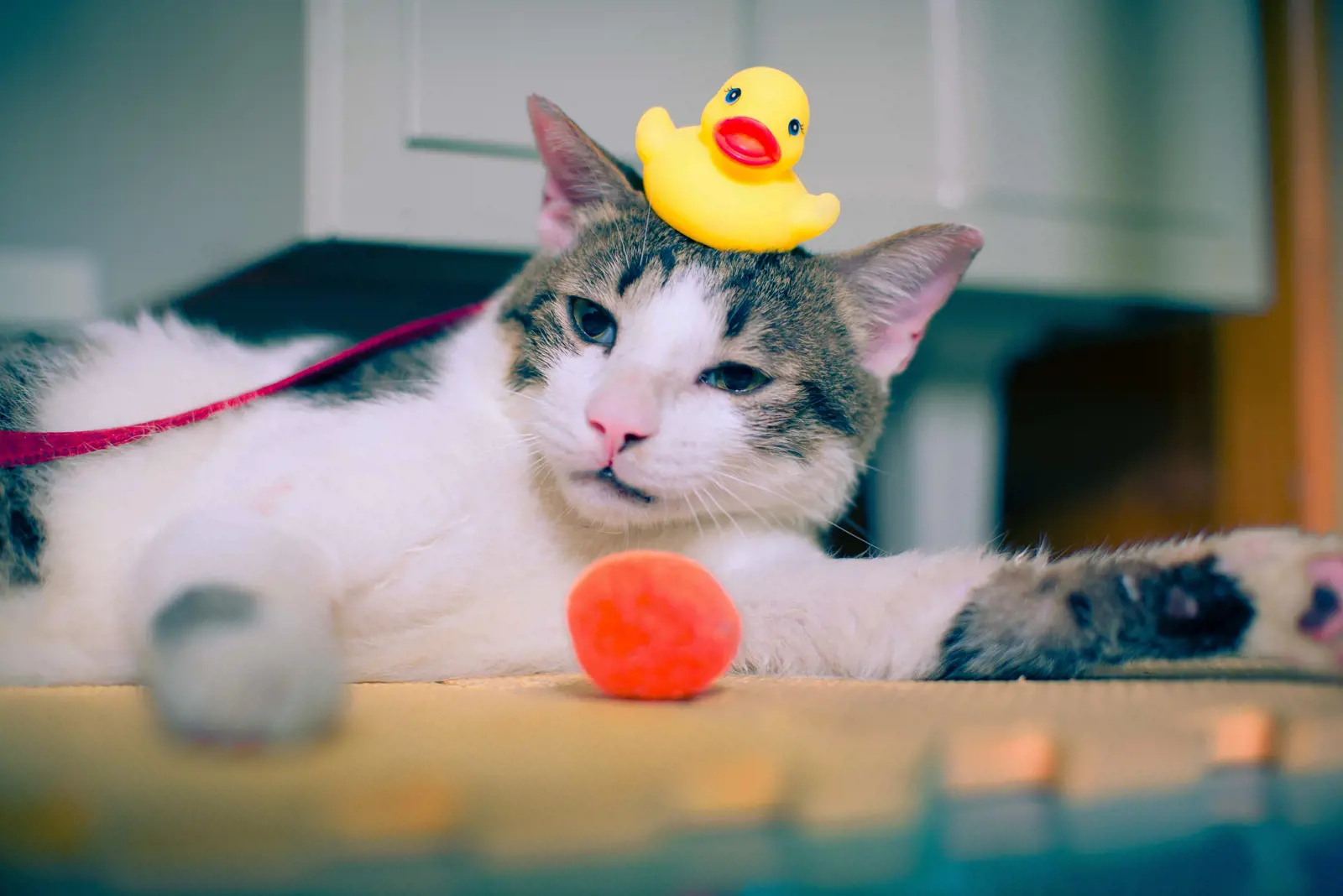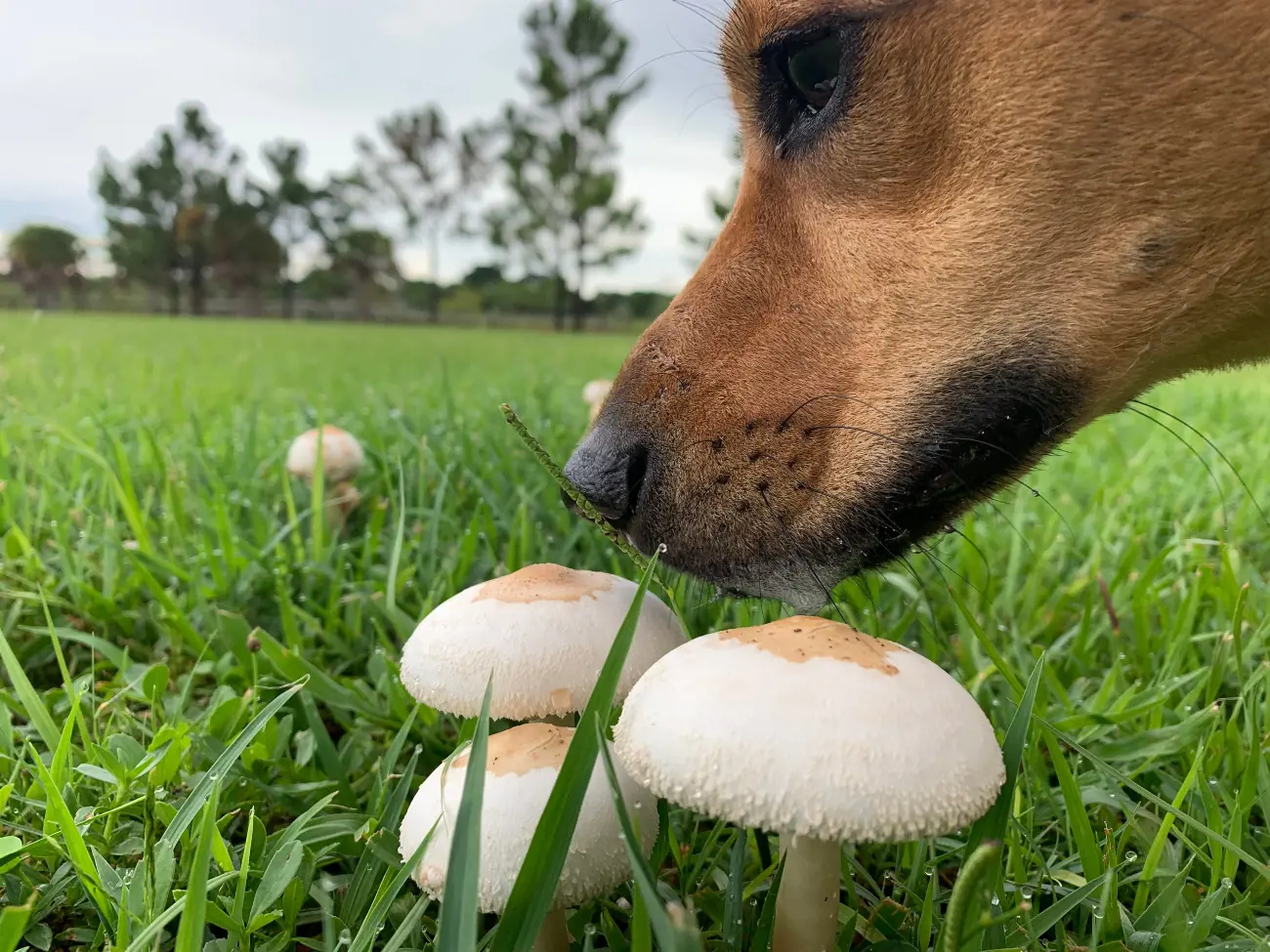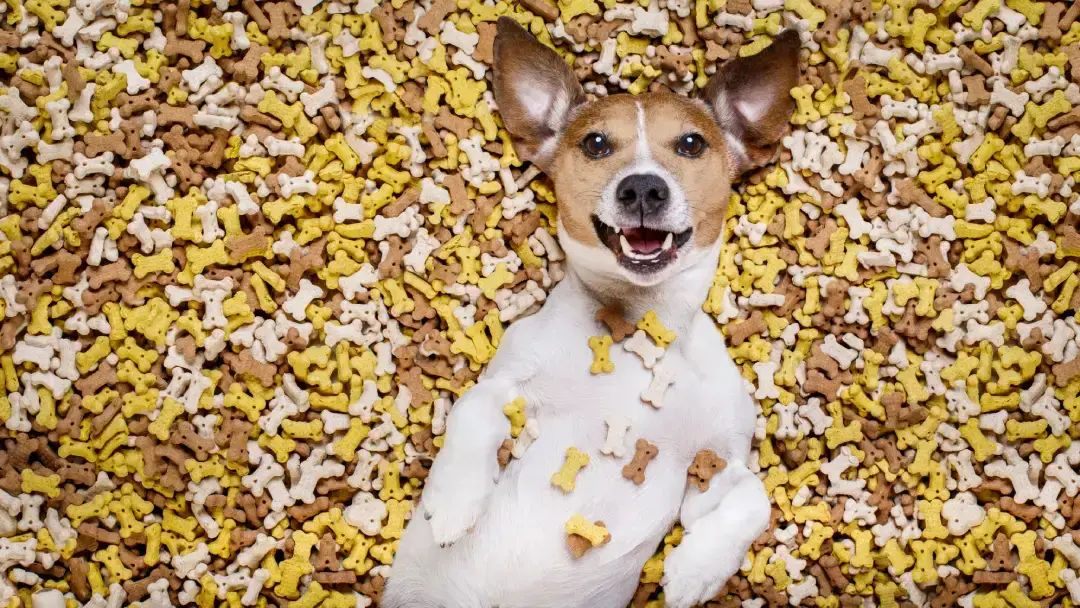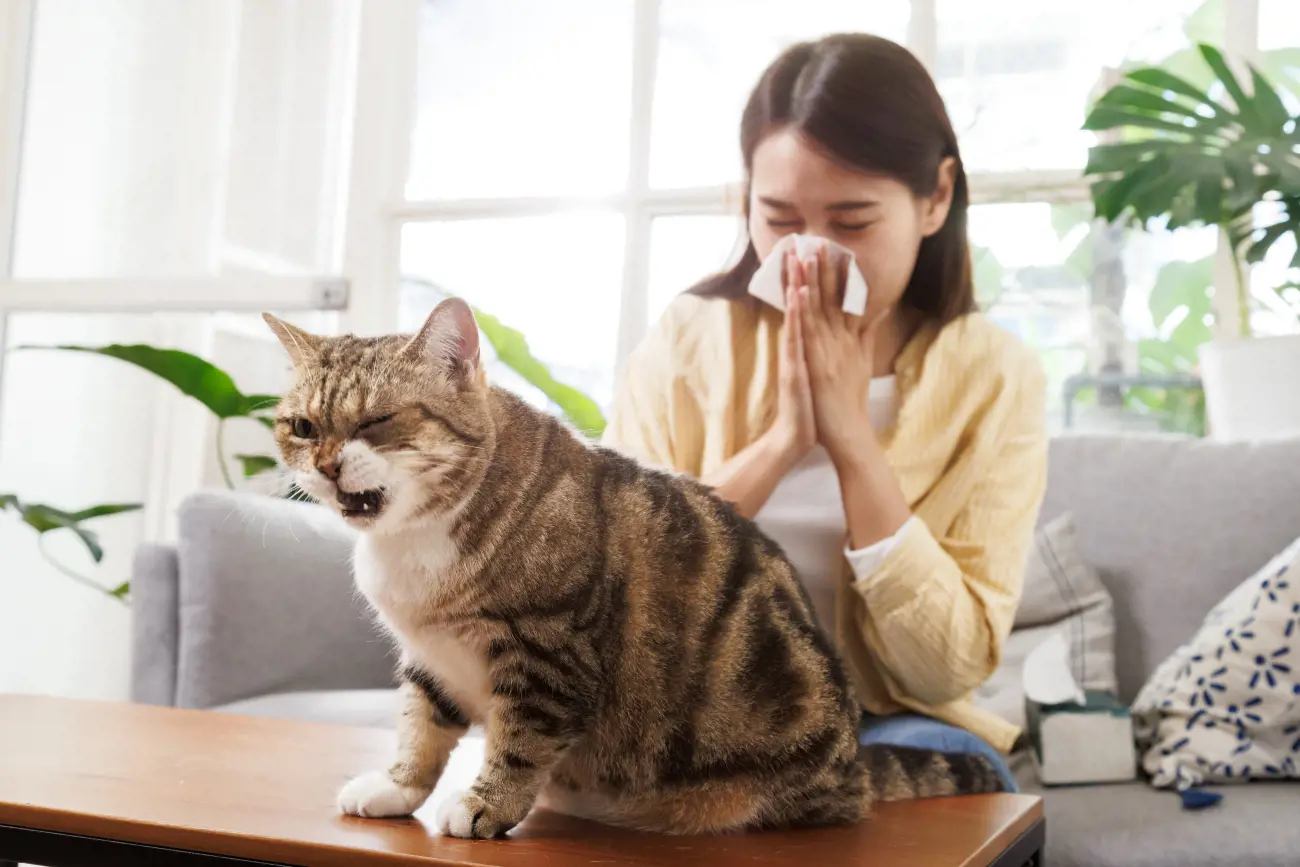Tips for preventing pet damage in your home
23rd March, 2021

From boisterous Boxers to homely Himalayans our four-legged housemates can all have a big impact on our homes – and not always for the better! Dogs and cats claw, chew and mark territory all as part of their natural animal behaviour, but when this happens in the home it can cause a lot of damage.
However, while this can cost their owners some serious money it’s important to remember they’re not doing it to upset you. And there are plenty of tips and tricks you can try to help stop this behaviour from wrecking your home and its contents. Read on to find out more.
As a responsible pet owner, it’s not just your home that you’ll want to keep safe from harm, it’s also your beloved pet.
One of the best things you can do to keep your pet protected is to invest in insurance for pets. Purely Pets’ Gold products have recently been awarded a 5* Defaqto rating for 2021 and are packed with benefits. Visit our website for a quick quote today.
According to the most recent PDSA annual report, 26% of UK adults own a dog while 24% own a cat – so that’s a lot of furry friends sharing our lives, homes, sofas and beds!
Unfortunately, while we love each other many of our homes and the items in them are not really designed for animal use.
From scratching our sofas and chewing our dining chair legs to toileting accidents there’s a whole range of damage going on all the time – adding up to an expensive end-of-year bill.
Trying out our top 10 tips is a good way to prevent some of this damage, while also providing your pet with a happier and healthier life.
10 top tips for preventing pet damage
Put your pet through their paces
According to the PDSA around 4.3 million dogs (around 42%) are walked for less than 30 minutes a day, while around 1.4 million dogs (around 13%) don’t get taken out during the day at all.
This is a big problem, both for our pets’ health as well as our homes. Dogs and cats, just like their human owners, need regular exercise for health and stimulation. And if they don’t get it then this can soon lead to problem behaviours causing damage around the house.
This is particularly a problem for those working dog breeds that have been bred over the years to excel at specific roles.
Whether herding sheep or digging out vermin, these dogs have been programmed for one thing, and they’re therefore desperate to do it (even if they don’t know why). For example, a terrier’s desire to dig can easily manifest as ripping up soft furnishings like sofas, cushions and pillows.
And don’t forget the felines! With the number of cats being kept indoors rising from 15% to 26% during 2020, it’s also important to think about their needs. After all, it’s far easier for outdoor cats to get the necessary hours of exercise they need than cats kept indoors.
Another issue highlighted by the PDSA report is that 10% of owners reported they were increasingly worried about how to pay vet bills if their pet fell ill or was injured. Having adequate pet insurance in place is the best way to allay these worries.

Spray solutions for chewing and scratching
Whether you’ve got a puppy who simply adores chewing wooden chair legs or a cat that’s obsessed with climbing the curtains, there are lots of safe sprays you can use to discourage this behaviour.
It’s usually an unpleasant flavour or aroma like lemon or apple that the animal doesn’t like. However, be careful of using these on fabrics without testing them first. If you don’t want to use them directly on an item then use sparingly around the area to deter the pet from going nearby.
As well as purpose designed sprays, home remedies that can deter cats include:
-
Citrus scented sprays
-
Cinnamon, rosemary, and lavender spray
-
Citronella oil
-
Lemon thyme, oregano or peppermint essence
-
Garlic
While dogs dislike:
-
Sour apple spray
-
Pepper
-
Citrus
-
Vinegar
-
Ammonia
There are so many ideas on how to puppy proof your house that are also worth considering if you have a new young and furry addition to the household.
Create a safe secure space
Setting boundaries and letting your pet know what is and is not acceptable is an important part of protecting your home and your pet from harm.
So, to keep a room or area dog free you could use a child gate to prevent access (the bars also let them see though so they don’t get too anxious if you’re on the other side).
But at the same time you need to make sure they’ve a safe, cosy space they can call their own. Custom-made crates or pens are great for this provided there’s plenty of room, but so are snuggly beds.
Whatever you choose, all pets need a quiet place where they can feel settled, safe and undisturbed by other pets or family members.
Tidy away precious or hazardous items
Our homes are full of expensive or sentimental items that we don’t want to be damaged by inquisitive paws, mouths or tails. A cup of tea knocked on to your favourite rug or an expensive new laptop crashing onto a wooden floor can all add to an expensive bill for pet owners.
Not to mention the hazards that small, sparkly jewellery or medication could present for your pet. If your faithful friend swallows such hazardous items then you’ll want to make sure you’ve got the best pet insurance to get them the emergency help they need.
Try to keep the clutter to a minimum and put loose items away in drawers. Always tuck cables and chargers away under furniture or into special sleeves to prevent them from being chewed or pulled.

Terrific throws and robust rugs
From high-quality sofas and beds to newly-laid carpets there’s a lot that can be damaged in the average UK home.
No matter how well behaved your pet is, all animals will leave their mark on your home in one way or another. Therefore a popular addition to your home furnishing armoury is the humble throw or trusty rug.
With an endless variety of colours, patterns, materials, sizes and costs there’s bound to be a rug or throw that perfectly fits your pet as well as your décor.
Not only will they add comfort, style and warmth but they’ll also protect furniture and floors from hair, drool, claws, mud and any number of issues.
Just throw them in the wash every now and again to keep everything looking ship-shape. It’s a whole lot easier and cheaper than getting the sofa and carpets steam cleaned or replaced!
See the world through their eyes
As a nation of pet lovers, we’re obsessed with animal behaviour, and our TV channels are awash with shows about what our beloved pets get up to, and why.
From Nightmare Pets SOS to It’s Me or the Dog we’ve learned to understand that what might appear to be random destructive behaviour often has a logical cause – when we consider the point of view of our dog or cat.
Start by looking at your home for the areas that are most susceptible to damage. Why is your pet targeting these areas and what can you do to protect them? For example, if your floor is getting damaged then invest in some hardwearing rugs or consider having their nails trimmed.
Another common area of concern is around windows. All pets like to look out to the street or garden. However, if you’ve got some flimsy blinds blocking the view then damage is bound to happen when they’re trying to watch for you coming home.
Invest in entertainment options
Pets can get very bored, particularly if you’re not around or you’ve left them for a long time. While cats need scratching posts and climbing towers to get their daily boost of interest, many dogs love their squeaky toys! You really need to consider what your pet has to do when you’re not there.
A popular way to provide them with both interest and exercise is to make them work for their food. Perhaps provide them with a slow-feeder or food puzzle that makes them put in the time to get a tasty treat.
As with any toys and accessories, it’s always a good idea to have several different types available to keep them interested. Variety is the spice of life as much for dogs and cats as it is for us.

Get a regular health check-up
Pain or discomfort from ill health or injury are common reasons for pets to cause damage.
Behaviour such as digging, chewing or even toileting indoors can all be caused by a health issue. For example, chewing is a common way for pups to deal with teething.
While toileting indoors can be caused by a whole variety of issues from stress and anxiety to urinary infections. A regular check-up with your vet will keep on top of any emerging issues.
Remember, pet insurance policyholders can call our 24-Hour Vet Helpline for guidance from our trained veterinary professionals.
Is it time for the professionals?
Behavioural problems such as causing damage around the home can be difficult to get to the bottom of. After checking with your vet to rule out any form of illness or injury, it may be worth getting in touch with a properly qualified animal behaviour expert.
Your vet can probably recommend someone. But if not, it's important that the expert is someone with the right knowledge, skills and experience.
Unfortunately, anyone can call themselves a behaviour expert, but many do not possess up-to-date knowledge or the necessary skills required to treat behaviour problems.
Indeed, rather than helping your four-legged friend, if the advice or methods are inappropriate or outdated then it could, in fact, adversely affect your pet’s welfare and even make problems worse.
The RSPCA recommends finding a professional behaviourist or trainer through the Animal Behaviour & Training Council. If you’ve tried other options then it might be time to get some expert input.
Sort stains before it’s too late
One of the most common forms of damage to your home is through urine stains on carpets. Dealing with a stain quickly is the best way to prevent long lasting damage to your home. If you discover a fresh (still wet) stain then do the following:
-
Soak up as much of the urine as possible with paper towels.
-
Rinse with clean cool water and blot dry.
If the stain is older or may have set then do the following:
-
If possible, use a wet vacuum on the stain.
-
Use a good quality pet odour neutralizer to remove the smell.
-
Use a decent carpet stain remover if there is staining present.
-
Avoid using a steam cleaner as this may set the stain further.
As the Blue Cross advises, it’s important not to punish your dog for any ‘accidents’ discovered too late. You may feel upset or frustrated but being angry with them won’t teach them anything constructive.

Protect your pet with Purely Pets
For many of us, a house is not a home without a dog or cat wandering around.
Unfortunately while pets can damage your home there are also many ways your home can hurt your pet! If your pet does get injured around the house, pet insurance can help cover the costs of treatment.
Depending on the level of cover you opt for, vets’ fees for accidents, illness or both can be covered from between £1,000 and £15,000.
With 15 levels of lifetime cover on offer, it’s easy to find a policy that suits your budget and requirements. As well as our award-winning protection, you can choose an excess from £60, and use our online policy management portal to manage your account at a time that suits you.
Get a pet insurance quote today.
Policy benefits, features and discounts offered may very between insurance schemes or cover selected and are subject to underwriting criteria. Information contained within this article is accurate at the time of publishing but may be subject to change.
Helpful Pages
Recent Posts
Pet Insurance Quote
- 98% claims paid *
- Claims paid directly to vets
- 24/7 vet video consultations
- Interest free monthly payments




